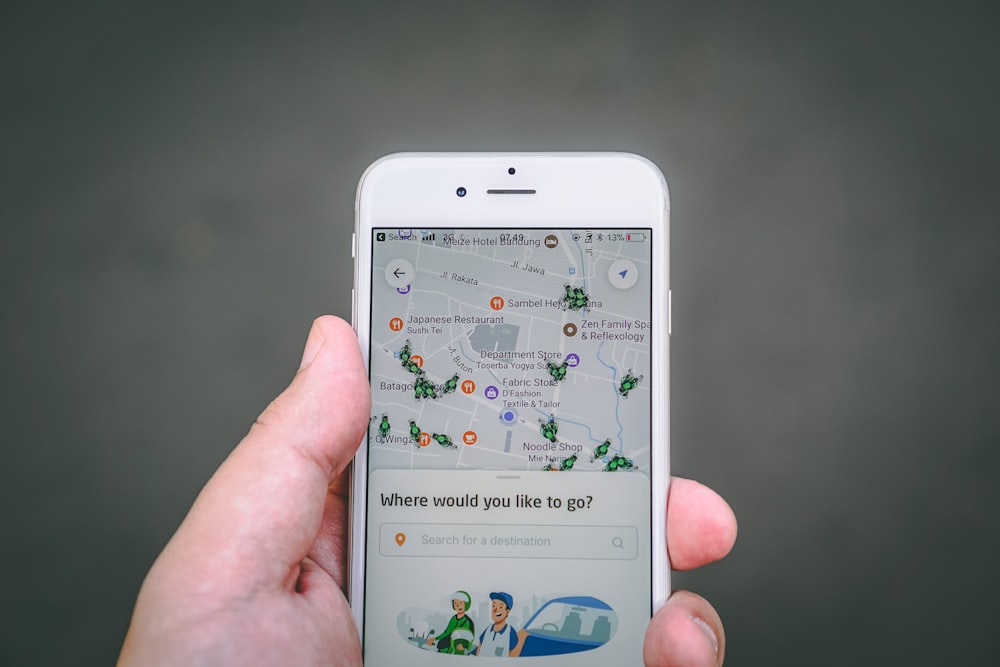Free Travel App White Paper Template
Travel App White Paper
I. Introduction
The travel industry has undergone significant transformations in recent years, with the proliferation of smartphones and mobile applications revolutionizing how people plan, book, and experience travel. Today, travelers rely heavily on travel apps to discover destinations, find accommodations, and navigate unfamiliar territories.
Purpose
The purpose of this White Paper is to explore the evolving landscape of travel apps and provide insights into their key features, development considerations, and market trends. By understanding the dynamics of travel apps, businesses can leverage technology to enhance the travel experience and drive customer engagement.
II. The Evolution of Travel Apps

A. Historical Context
-
Travel apps have evolved from simple itinerary planners to sophisticated platforms that offer a wide range of services, including booking flights, hotels, rental cars, and activities.
-
The advent of mobile technology has empowered travelers with instant access to information, real-time updates, and personalized recommendations, transforming the way people plan and experience their journeys.
B. Current Landscape
-
Today, the travel app market is flooded with a plethora of options catering to different travel preferences and budgets.
-
Popular travel apps such as Expedia, Airbnb, and TripAdvisor dominate the market, offering comprehensive solutions for travelers worldwide.
III. Key Features of Successful Travel Apps
A. User Interface and Experience (UI/UX)
-
Intuitive design and seamless navigation are essential for creating a positive user experience, allowing travelers to easily explore destinations, compare options, and make informed decisions.
-
Visually appealing interfaces, interactive maps, and high-quality imagery enhance the overall usability and engagement of travel apps.
B. Booking and Reservation Systems
-
Travel apps streamline the booking process by offering integrated reservation systems for flights, hotels, and other accommodations.
-
Features such as flexible search filters, real-time availability updates, and secure payment gateways ensure a seamless booking experience for travelers.
C. Personalization and Recommendations
-
Travel apps leverage user data and machine learning algorithms to provide personalized recommendations tailored to each traveler's preferences, interests, and past behavior.
-
From customized trip itineraries to targeted promotions and deals, personalization enhances the relevance and value of the travel app experience.
IV. Development and Implementation Considerations
A. Platform Selection
-
When developing a travel app, businesses must consider factors such as target audience demographics, market reach, and platform compatibility (iOS, Android, web).
-
Native app development offers superior performance and user experience but requires separate development efforts for each platform, whereas hybrid and web-based approaches offer cost-effective solutions with broader reach.
B. Technology Stack
-
The choice of technology stack depends on the app's requirements, scalability, and budget constraints.
-
Essential components include backend infrastructure (server, database), APIs for integration with third-party services (payment gateways, mapping services), and frontend frameworks for UI development.
C. Testing and Quality Assurance
-
Rigorous testing and quality assurance are crucial to ensure the reliability, security, and performance of travel apps across different devices and operating systems.
-
Testing methodologies include functional testing, usability testing, performance testing, and security testing to identify and address potential issues before deployment.
V. Market Trends and Opportunities
A. Rise of Mobile Bookings
-
Mobile bookings continue to dominate the travel industry, with travelers increasingly relying on smartphones and tablets to research, plan, and book their trips.
-
Travel apps must optimize for mobile devices, offering responsive design, fast loading times, and seamless user experiences to capture mobile-savvy travelers.
B. Integration of Augmented Reality (AR) and Virtual Reality (VR)
-
Augmented reality (AR) and virtual reality (VR) technologies hold immense potential for enhancing the travel experience by providing immersive and interactive content.
-
From virtual tours of destinations to AR-guided navigation and interactive travel guides, AR and VR enrich the storytelling and exploration aspects of travel apps.
C. Embracing Sustainable Tourism
-
Sustainable tourism is gaining traction among environmentally conscious travelers, driving demand for eco-friendly accommodations, responsible travel experiences, and carbon-neutral transportation options.
-
Travel apps can promote sustainable tourism practices by showcasing eco-friendly destinations, supporting local communities, and providing carbon footprint calculators and offsetting options.
VI. Case Studies
A. Successful Travel App Launches
-
Case Study 1: BoldTravel, a startup travel app, gained rapid traction by offering personalized trip recommendations based on user preferences and social connections, resulting in a 150% increase in user engagement within the first month of its launch.
-
Case Study 2: Wanderlust, a leading travel app, expanded its global reach by partnering with local tourism boards and influencers to curate unique travel experiences, resulting in a 200% increase in bookings in targeted regions.
B. Innovative Features and Strategies
-
Case Study 1: TripTracker implemented an AI-powered chatbot feature within its travel app, providing travelers with real-time assistance, itinerary suggestions, and personalized recommendations, leading to a 30% reduction in customer support inquiries and increased user satisfaction.
-
Case Study 2: TravelSavvy leveraged machine learning algorithms to analyze user behavior and preferences, enabling targeted advertising campaigns that resulted in a 20% increase in conversion rates and ad revenue.
VII. Future Outlook
A. Emerging Technologies
-
Emerging technologies such as blockchain, Internet of Things (IoT), and artificial intelligence (AI) are poised to reshape the future of travel apps, offering opportunities for innovation and disruption.
-
From blockchain-based loyalty programs to AI-powered travel assistants and IoT-enabled smart travel accessories, the possibilities for enhancing the travel experience are limitless.
B. Market Challenges and Opportunities
-
While the travel app market presents lucrative opportunities for growth and innovation, it also poses challenges such as intense competition, evolving consumer preferences, and data privacy concerns.
-
Businesses must stay agile and adaptable, continuously innovating and adapting to changing market dynamics to stay ahead of the curve.
VIII. Conclusion
In conclusion, travel apps play a pivotal role in shaping the modern travel experience, offering convenience, personalization, and accessibility to travelers worldwide. By understanding the key features, development considerations, and market trends of travel apps, businesses can harness the power of technology to create compelling and impactful experiences that delight and inspire travelers.
[Your Name]
[Your Position]
[Your Company Name]
[Your Company Number]
